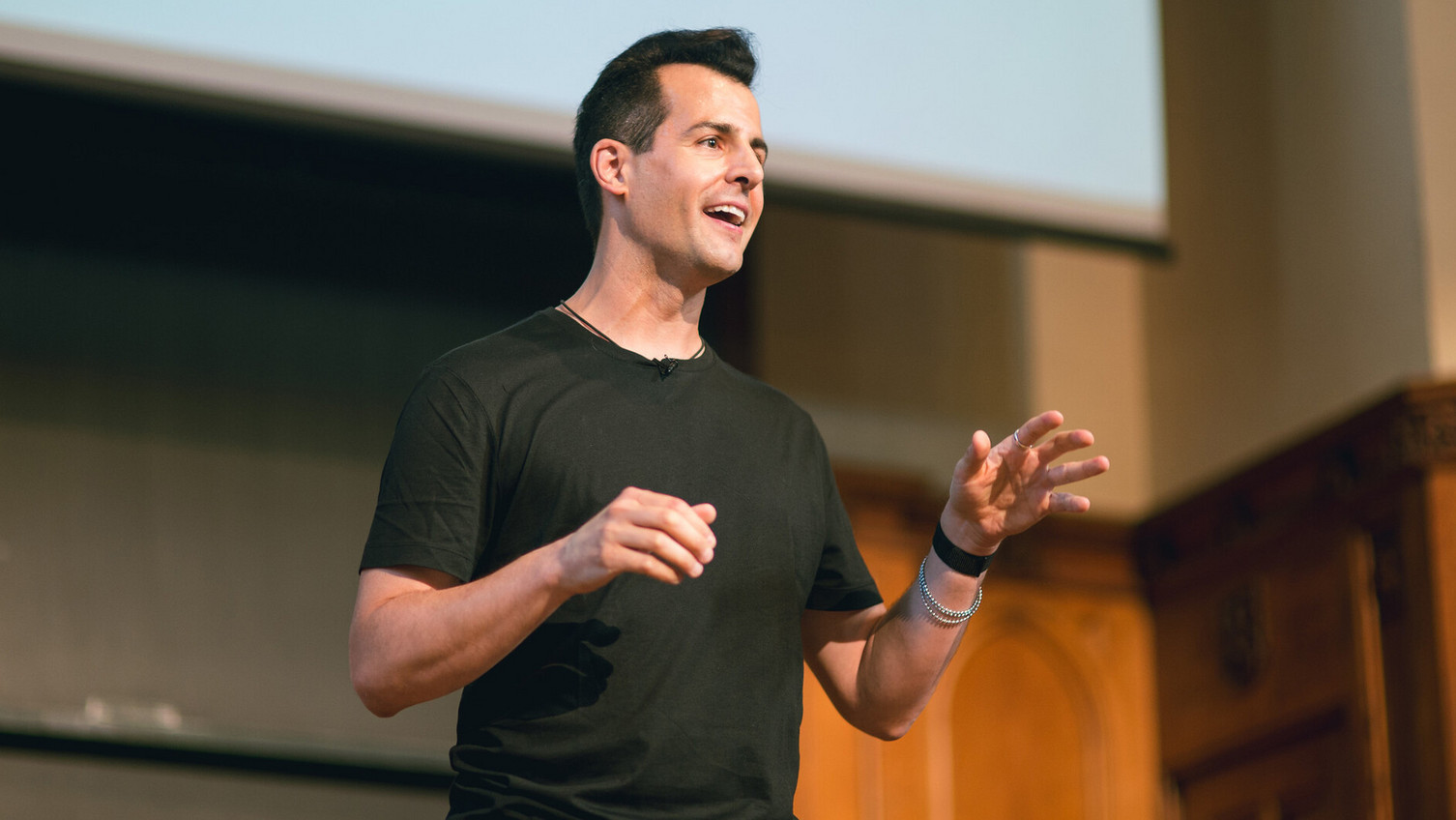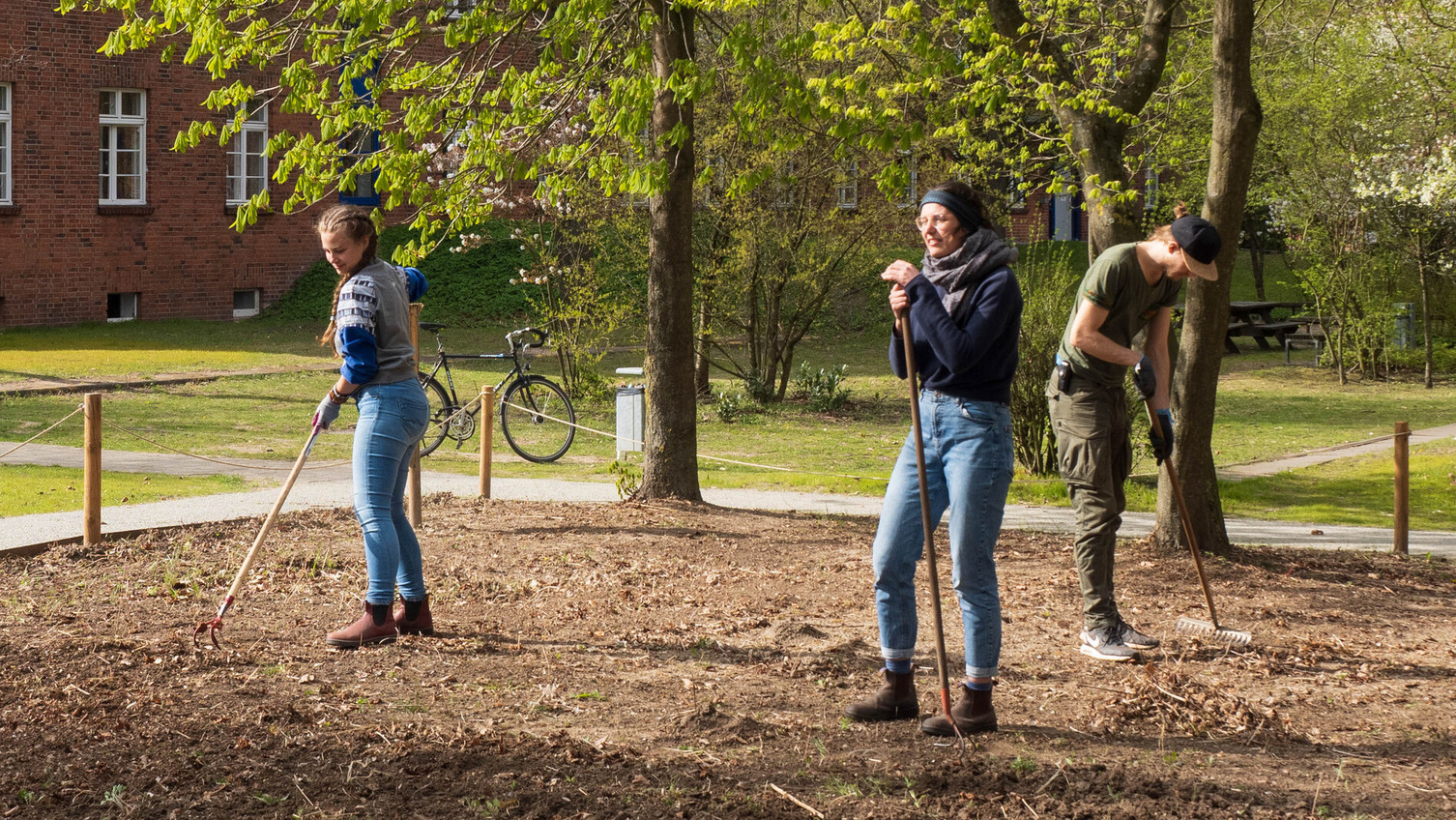David Malan studied computer science and economics at Harvard University. He received his doctorate there in 2007 on the highly topical subject of cybersecurity and digital forensics, with a special focus on pattern recognition in large data sets. His main scientific contributions in this field include his approaches to the implementation of public-key infrastructures in sensor networks, the detection of security gaps in privacy tools and his approach to the identification of malware in peer networks. The second field of research to which David Malan has devoted himself intensively over the past 15 years is computer science didactics.
Since 2007, he has been Gordon McKay Professor of the Practice of Computer Science and in this capacity is responsible for what is probably the world's best-known introductory course in programming: Harvard's Computer Science 50, or CS50 for short. In addition to his scientific and entrepreneurial activities, David Malan brings his experience as a mathematics teacher and, since the late 1990s, as the youngest teacher at Harvard Extension School at the time. Reading his widely acclaimed Teaching Statement shows how much these experiences have shaped his teaching philosophy and why David Malan is now one of the world's leading minds in computer science didactics. He has investigated the challenges of introductory computer science courses aimed at students from all disciplines, exploring and demonstrating the great importance of appropriate support services. Students on his courses receive support not only from numerous Teaching Fellows and Assistants, but also from their fellow students. David Malan is concerned that students learn technologies in a self-determined way and recognise the potentials. He says himself: "Indeed, at term's end, a successful outcome is when students have learned something that we did not teach them". David Malan demands a high level of motivation from his students and, against the background of their heterogeneous background, defines the individual increase in competence and knowledge as an essential criterion for success.
David Malan has an impressive stage presence, which proves how entertaining and instructive university teaching can be, and so it is not surprising that his teaching offers are known and used far beyond the Harvard campus. On the teaching platform edX, for example, CS50 is the largest MOOC with 3.4 million participants. In this context, I would like to mention that David Malan is for me one of the great pioneers of digital teaching, and not only since the beginning of the pandemic. His contributions and ideas go far beyond the one-way streaming of lectures on video platforms. He succeeds in making online lectures interactive through the considered use of technology and in using modern software engineering tools such as GitHub and Docker for the provision of learning resources and the supervision and assessment of students in an innovative and efficient way.
The jury awarded the prize for the voluntary commitment of students to the project
Leuphana Forest Garden
project. The laudatory speech was given by last year's winners Maite Quensel and Silja Geest from the previous year's winner "Campus History Working Group". The Leuphana Forest Garden includes Mercedes Schroeder, Ronja Johanna Therese Kaiser, Jana Marion Böhme and Julia Gobs.
The project team describes its commitment as follows:
Forest gardens are multi-layered ecosystems which, in addition to increasing biodiversity and providing food, can also be meeting and recreational spaces. These systems are currently very unknown and we at the Edible Campus are committed to education and visibility of this sustainability solution through the implementation of this project. In 2019, Dr. Stefanie Albrecht and Dr. Agnes Friedel launched the seminar "Forest Garden Reallabor: sustainable and multifunctional land use in urban space", bringing the topic of forest gardens to Lüneburg. One year later (due to Corona and a change of destination), the complementary seminar "Designing a Forest Garden for the Leuphana Campus" started planning the area on campus in the winter semester 2020/2021. The two lecturers Dr. Stefanie Albrecht and Dr. Agnes Friedel founded and continue to accompany the project, especially with subsequent seminars in which the seminar participants work on and further develop open work packages on various topics (such as area planning, public relations or educational offers). For each work package within the seminar, there has also been a direct contact person from the initiative since this semester, who are also part of the people proposed here. The Leuphana Forest Garden is about 450 square metres in size. It is located on the Spielwiese, Leuphana's library garden. The concept for near-natural cultivation in urban spaces is also intended to ensure more biodiversity on campus. The first plants have already been planted through community planting activities: sweet chestnut, elderberry, white, red and black currants, raspberries, comfrey, lungwort, lemon verbena, thyme and wild strawberries. As already indicated, since last October the creation has been accompanied not only via the seminars, but also more long-term via a student initiative. This initiative is the "Edible Campus". Until last October, its focus was on cultivating beds in the campus biotope garden. Through the initiative of Mercedes Schroeder, who wrote her Bachelor's thesis on forest gardens based on previous work in the forest garden seminar, the forest garden is now also part of the "Edible Campus" initiative. Since then, Ronja Kaiser, Jana Boehme and Julia Gobs in particular have been taking care of the further development of the project. Due to Corona, we mostly met online in the winter semester and discussed and planned many theoretical and organisational things. Since the forest garden is integrated into the master plan for the redesign of the campus (by Oliver Günther and Irmhild Brüggen), external communications are particularly important for us. We have also been involved with Lüneburg 2030+ for some time through the seminar and are also part of the project through the "Green Gable".
Timetable
This project will hopefully shape the campus for several decades. Since forest gardens develop slowly, there are always new goals that we cannot yet foresee.
This year, in particular, we want to expand public relations, set up an Instagram account and also give our first guided tours (two are already being planned). We will also carry out the plantings that have already been planned. This will take place with a small planting festival in cooperation with the seminar and with the involvement of everyone who is interested. In the medium term, we are striving for educational work beyond the campus boundaries, in which the neighbourhood and other educational institutions are also informed about forest gardens. There are already requests from schools, but we currently lack the capacity to meet them
Effort
Overall, the project is labour-intensive; we meet weekly to discuss current developments and next steps, aware that there is always more to do than we can manage in the time available. However, it is important to us that we see our work as voluntary. We have therefore just taken part in an itinerant coaching session organised by Network N, in which we defined our roles more precisely and defined areas of responsibility in such a way that we feel comfortable with our commitment in the long term. You can read more about our commitment on our blog or in this year's Leuphana sustainability report.
Funding
Through the "plundering" of Dr. Agnes Friedel's private garden, an order of plants from student funds and financial support from Irmhild Brüggen, we have already moved a lot. Just this Wednesday, we got a funding pot approved at the student parliament's finance committee to be able to finance the next plantings and needed materials. In addition, Lüneburg 2030+ has held out the prospect of further financial support and Voelkel would also be happy to donate one or two fruit trees.



